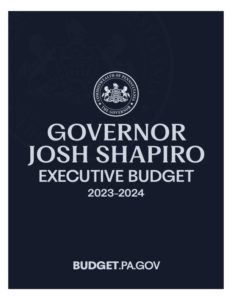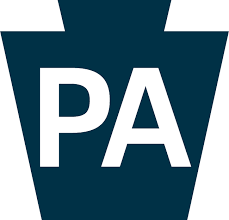PA Health Policy Update for August 1
The following is an update of selected state health policy developments in Pennsylvania from July 28 – August 1. (Some of the language used below is taken directly from state documents).
The SNAP State Health Policy Update is taking a summer break and will return on August 15 with more health policy news.
Fiscal Year 2025-26 Budget Update
Governor Shapiro and legislative leaders continue to negotiate a final Fiscal Year (FY) 2025-26 budget agreement. The state House of Representatives and Senate are currently in recess pending a final budget agreement.
The Senate Republican Policy Committee is holding an informational meeting on August 5 regarding mental health services at the Geisinger Behavioral Health Center in Danville, PA.
Department of Human Services
DHS has issued Provider Quick Tip #278 indicating DHS has experienced a delay in implementing the updates noted in Medical Assistance (MA) Bulletin 99-25-03 titled, “Updates to Screening Guidelines for Prior Authorization”. This MA Bulletin advised providers that the Department would transition from InterQual guidelines to Milliman Clinical Guidelines (MCG) as the screening guidelines for prior authorization requests to determine medical necessity for services, items, procedures, or level of care provided to MA beneficiaries in the Fee-for Service (FFS) delivery system, effective July 18, 2025.
The Department of Human Services has published in this week’s Pennsylvania Bulletin final-form rulemaking to amend a data element in the department’s case-mix payment system for nonpublic and county nursing facilities to utilize the Patient Driven Payment Model (PDPM) in place of the Resource Utilization Groups, Version III (RUG-III) classification system in setting Medical Assistance (MA) payment rates for nursing facilities.
Department of Health
The Department of Health (DOH) recently shared a message from the Pennsylvania State Police (PSP) asking health care operators for assistance investigating an individual who is accused of using several aliases to pose as a licensed practical nurse, registered nurse, and RN supervisor at multiple facilities in the commonwealth. Providers are asked to review their employment records and report new information to PSP directly. Find more information in this PSP notice.
The Department of Health (DOH) is coordinating the statewide distribution of free potassium iodide (KI) tablets on August 14 for all Pennsylvanians who live, work, or study within 10 miles of the four active nuclear power plants in the Commonwealth. The press release can be found here.
Department of Aging
The Shapiro administration announced the members of an advisory committee to support the newly created Alzheimer’s Dementia and Related Disorders Office in the Department of Aging.
Around the State
- Secretary of the Budget Office, Uri Monson, penned letters to local educational leaders and county public welfare providers explaining which funds will not be able to be distributed during the budget impasse. Find more information and copies of the letters in this Spotlight PA article.
- Less than half of Pennsylvania hospitals are complying with federal price transparency requirements, according to a new study discussed in this article from Erie News Now.
- The Philadelphia Inquirer reported on the nutritional value of food in hospitals and how some providers are working to improve it in this article.
- Spotlight PA launched the first in a series of articles called The Cost of Failing, which will analyze and chronicle mental health spending and services in all 67 counties over the last few state administrations to show how many fewer people receive mental health services in the commonwealth today than just a few years ago.
- City & State reports on how rural hospitals across Pennsylvania are bracing for steep financial stress following the passage of the “One Big Beautiful Bill” and how these hospitals, which rely heavily on Medicaid revenue, face escalating risks of closures and service reductions as proposed cuts drive up uncompensated care and threaten stability in already vulnerable rural communities.
Stakeholder Meetings
DHS – Long-Term Services & Supports Subcommittee – August 6
The Long-Term Services and Supports (LTSS) Subcommittee of the Medical Assistance Advisory Committee (MAAC) will hold its next public meeting on August 6 at 10:00 a.m. The meeting will be held virtually. Register to participate here.
DOH – Organ Donation Advisory Committee – August 7
The Organ Donation Advisory Committee will hold a public meeting on Thursday, August 7 from 10:00 a.m. to 1:30 p.m. The meeting will be held in person and virtually. Find additional information and details on how to participate in this Pennsylvania Bulletin notice.
DOH – Infant Hearing Screening Advisory Committee – August 7
The Infant Hearing Screening Advisory Committee will hold a public meeting on Thursday, August 7 from 12:00 p.m. until 3:00 p.m. at 6340 Flank Drive, Harrisburg, PA 17112. The meeting will be conducted in person only. Find information on how to RSVP in this Pennsylvania Bulletin notice.







 Governor Shapiro
Governor Shapiro Department of Human Services
Department of Human Services Stakeholder Events
Stakeholder Events Included in this month’s issue are articles about:
Included in this month’s issue are articles about: State-Wide Mask Mandate
State-Wide Mask Mandate COVID-19: By the Numbers
COVID-19: By the Numbers The proposed budget, presented to the state legislature earlier this week, includes the following new initiatives:
The proposed budget, presented to the state legislature earlier this week, includes the following new initiatives: